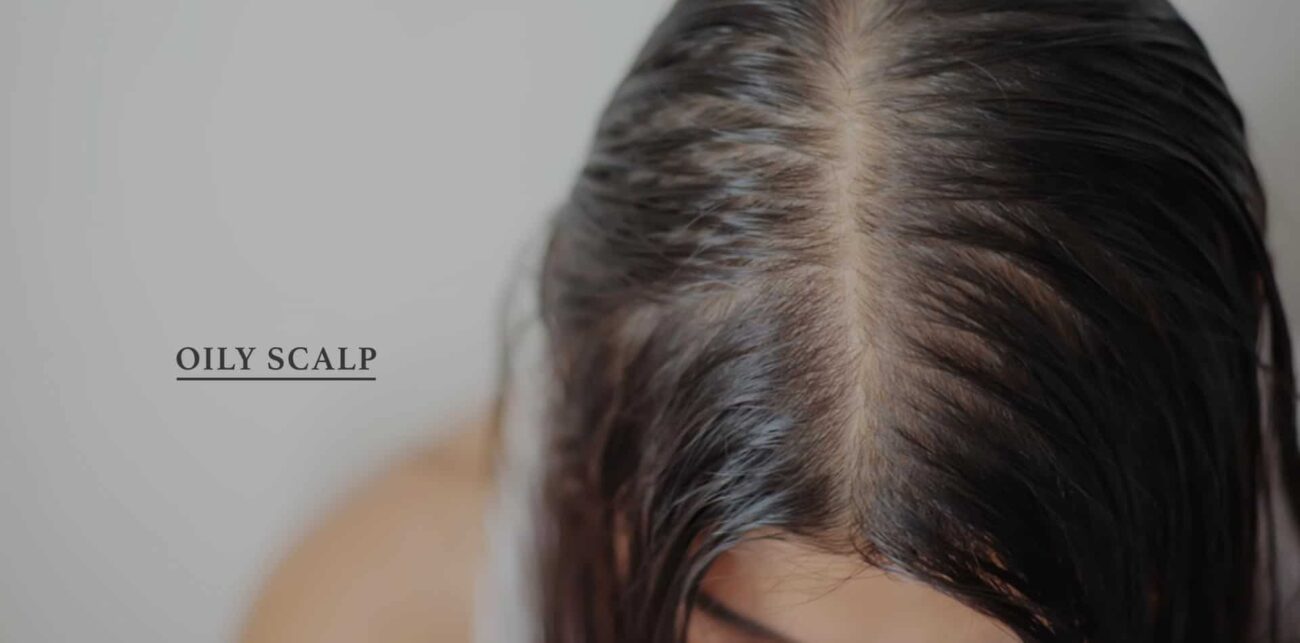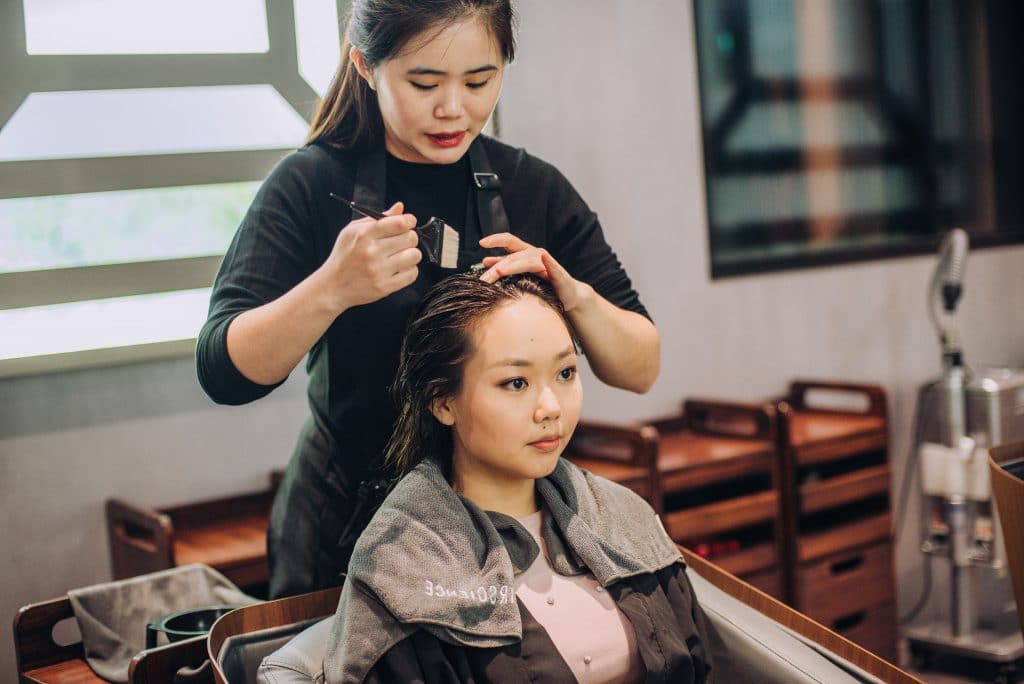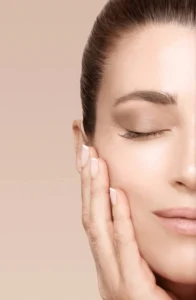An oily scalp can be a persistent and frustrating issue, affecting not only the appearance of your hair but also its overall health. Characterized by an overproduction of sebum, an oily scalp can lead to greasy hair, itchiness, dandruff, and in some cases, hair loss. However, with the right approach and professional care, it’s possible to manage and balance sebum production effectively. This article explores the causes of an oily scalp and offers specialist-recommended solutions for long-lasting results.

Understanding the Oily Scalp: Causes and Effects
1. Sebum Overproduction
Sebum, the natural oil produced by the sebaceous glands, is essential for protecting and hydrating the scalp and hair. However, excessive production can lead to:
- Greasy, flat hair
- Increased risk of scalp conditions like dandruff or seborrheic dermatitis
- Clogged hair follicles, potentially leading to hair thinning or loss
2. Causes of Excess Sebum
- Hormonal Imbalances: Puberty, pregnancy, or hormonal disorders can trigger sebum overproduction.
- Improper Hair Care: Overwashing, harsh shampoos, and incorrect product choices can strip the scalp of its natural oils, prompting it to produce more sebum.
- Diet and Lifestyle: Diets high in fatty or sugary foods, stress, and lack of sleep can exacerbate oiliness.
- Environmental Factors: Humid climates or exposure to pollution can increase oil buildup.
- Genetics: A hereditary predisposition can also influence scalp oiliness.

Professional Solutions for Managing an Oily Scalp
1. Optimized Hair Care Routine
- Choose the Right Shampoo: Use a gentle, sulfate-free shampoo specifically formulated for oily scalps. Look for ingredients such as:
- Salicylic Acid: Helps exfoliate and unclog pores.
- Tea Tree Oil: Known for its antimicrobial and oil-balancing properties.
- Clay: Absorbs excess sebum without stripping the scalp.
- Washing Frequency: Contrary to popular belief, washing your hair daily with the right shampoo can help control oiliness. However, over-washing with harsh products can worsen the problem.
- Conditioner Placement: Apply conditioner only to the mid-lengths and ends of your hair to avoid adding extra oil to the scalp.
2. Scalp Treatments
- Clay Masks: Applying a clay mask once a week can absorb excess oil, detoxify the scalp, and provide a refreshing cleanse.
- Apple Cider Vinegar Rinse: Mix one part apple cider vinegar with two parts water and use it as a final rinse after shampooing. Its acidic nature helps balance the scalp’s pH and reduce oil production.
- Exfoliating Scrubs: Weekly use of a scalp scrub with fine granules can remove buildup and unclog hair follicles.
3. Lifestyle Modifications
- Balanced Diet: Include foods rich in omega-3 fatty acids, zinc, and biotin, which promote scalp health. Avoid greasy, processed, and sugary foods.
- Hydration: Drink plenty of water to maintain the scalp’s natural moisture balance.
- Stress Management: Practice yoga, meditation, or other relaxation techniques to reduce stress, a common trigger for oil production.
- Sleep Hygiene: Aim for 7-9 hours of quality sleep each night to support hormonal balance.
4. Styling Tips for Oily Hair
- Dry Shampoo: Use a dry shampoo to absorb excess oil between washes and add volume to flat hair.
- Avoid Heavy Products: Stay away from serums, oils, or styling creams that can weigh down your hair.
- Limit Heat Styling: Frequent use of blow dryers and flat irons can stimulate oil glands. Allow hair to air-dry whenever possible.
- Protective Hairstyles: Loose braids or buns can prevent excessive touching of the scalp, which transfers oils from your hands to your hair.

Natural Remedies for Oily Scalp
1. Aloe Vera Gel
Apply pure aloe vera gel to your scalp. Its soothing and oil-regulating properties help balance sebum production while nourishing the scalp.
2. Lemon Juice Rinse
Dilute fresh lemon juice with water and use it as a rinse. The acidic nature of lemon helps cleanse excess oil and maintain a healthy pH.
3. Green Tea
Rinse your scalp with cooled green tea. Its antioxidants and tannins help reduce oiliness and soothe inflammation.
4. Baking Soda
Use a small amount of baking soda mixed with water as a scalp exfoliator to absorb oil and remove buildup.

Common Myths About Oily Scalp
- Myth: Oiliness Means Dirty Hair: Oily scalp is not necessarily a sign of poor hygiene. It’s often a biological or hormonal issue.
- Myth: Washing Less Reduces Oil Production: Prolonging washes can lead to a buildup of oil, dirt, and dead skin cells, worsening the problem.
- Myth: Skipping Conditioner Helps: Conditioner is essential for hydrating the hair. The key is to avoid applying it to the scalp.
When to Seek Professional Help
If home remedies and over-the-counter products fail to control scalp oiliness, consult a dermatologist or trichologist. Persistent or severe cases may require:
- Prescription Shampoos: Medicated shampoos containing ingredients like ketoconazole or selenium sulfide can address conditions like seborrheic dermatitis.
- Scalp Treatments: Professional treatments such as microneedling or chemical peels can improve scalp health and regulate sebum production.
- Hormonal Therapy: If hormonal imbalances are the root cause, a healthcare provider may recommend specific treatments.
Preventive Measures
- Avoid touching your scalp frequently.
- Clean hair tools regularly to remove oil and product residue.
- Protect your scalp from sun exposure by wearing a hat or using UV-protective sprays.
- Opt for sulfate-free shampoos to avoid stripping natural oils excessively.
- Maintain a consistent hair care routine tailored to your scalp’s needs.
Conclusion
An oily scalp can be challenging, but it is manageable with the right combination of hair care practices, natural remedies, and lifestyle adjustments. By understanding the causes and employing targeted solutions, you can achieve a balanced, healthier scalp and enjoy hair that feels fresh, voluminous, and full of life. For persistent issues, consulting a specialist can help you identify underlying causes and provide tailored treatments for long-lasting results.












